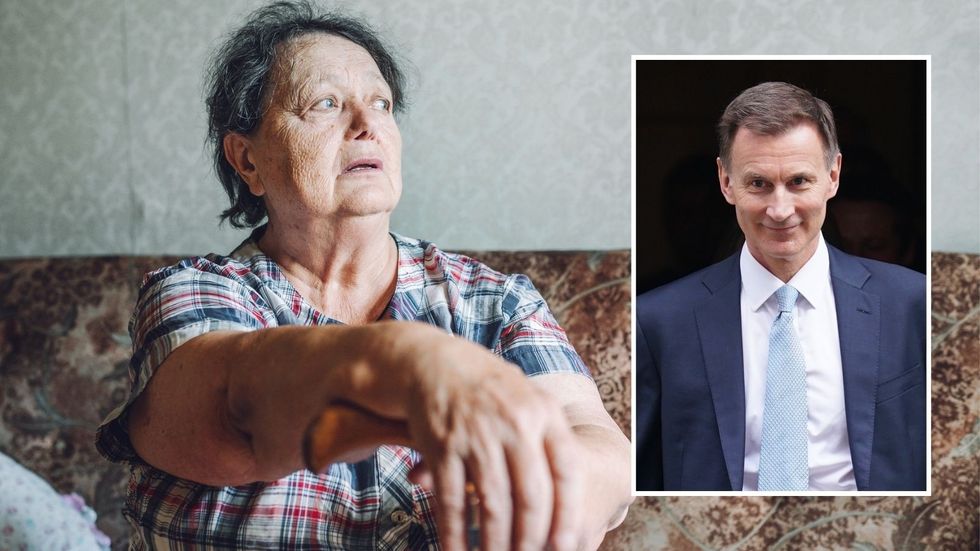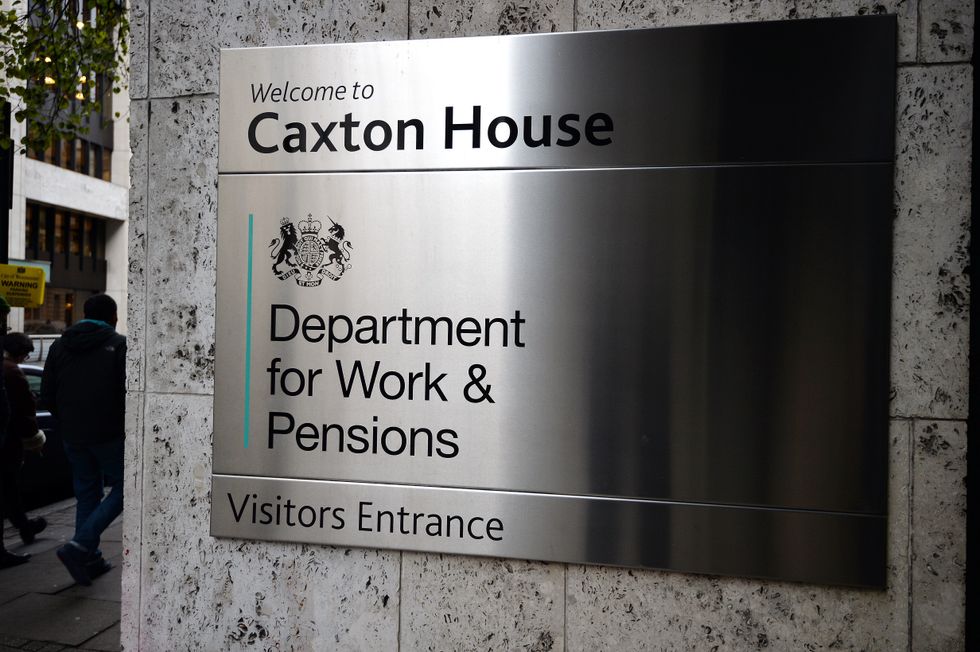The Government has reiterated its promise to keep the state pension triple lock but it’s not clear if it will be in the Conservative Party’s General Election manifesto
Don't Miss
Most Read
Latest
Experts are warning the public about the “serious question” over the future of state pension funding following the Chancellor Jeremy Hunt’s Spring Budget.
Earlier today, Mr Hunt confirmed that National Insurance would be slashed from 10 per cent to eight per cent in a move that will save the average worker £450 a year.
However, analysts have noted the Budget’s lack of acknowledgement about the plight of pensioners amid the ongoing cost of living crisis.
This concern has been exacerbated as a person’s National Insurance contributions go towards their state pension entitlement with cuts to the tax potentially jeopardising their retirement.
Do you have a money story you’d like to share? Get in touch by emailing money@gbnews.uk.

Concerns have been raised about the triple lock's future after Mr Hunt's Budget
GETTY/PA
Steven Cameron, pensions director at Aegon, described the National Insurance rate reduction as a “welcome boost” to employees.
However, he said it sparked a “serious question” about the approach the Government is taking to funding the state pension.
He explained: “There’s no magic money pot to pay state pensions – they’re funded by the National Insurance of today’s workers.
“While employer National Insurance contributions remain unchanged, having cut employee NI from 12 per cent to eight per cent and self-employed NI from 10 per cent to six per cent, there is now far less money from National Insurance to pay state pensions.
“The Treasury needs to confirm how they intend to plug the gap and if this will rely on a transfer from broader tax receipts.”
The full new state pension will exceed £220 a week for the first time in April following confirmation the triple lock will remain in place. Under the triple lock, the Government raises payments by the highest out of the rate of inflation, average earnings of 2.5 per cent.
In April 2024, the state pension will rise in line with average earnings which means an 8.5 per cent hike for payments. As such, the full new state pension will go up by £17.35 a week to £221.20, while the basic state pension will jump by £13.30 a week to £169.50.
The latter payment applies to people who reached the state pension age before April 2016. Currently, the full new state pension is just over £10,600 a year and the basic equivalent is £8,122 annually.
LATEST DEVELOPMENTS:

The state pension triple lock has been in place since 2010
PAPensioners have been among the groups most adversely hit by the rising cost of living, which has been exacerbated by soaring energy bills and high inflation. On top of this, experts have questioned how long the triple lock will continue to remain in place due to cost being placed on the taxpayer.
Claire Trott, the divisional director of Retirement and Holistic Planning at St. James’s Place, warned that the growing expense of the triple lock is an issue for policymakers will have to grasp with sooner rather than later.
She explained: “The triple lock gives pensioners a form of comfort that they know that their state pensions won’t decrease in value or buying power.
“The impact of inflation on pensioners is greater because they are no longer earning and unless they have inflation proofed their income they have a fixed amount to last them the remainder of their lives.
“However, the triple lock is expensive which is something that the Chancellor needs to consider when he is balancing the books. With this year’s increase already guaranteed in April no changes will have any impact until April 2025 when we may or may not have a new Government, so promises are easy to make.”














